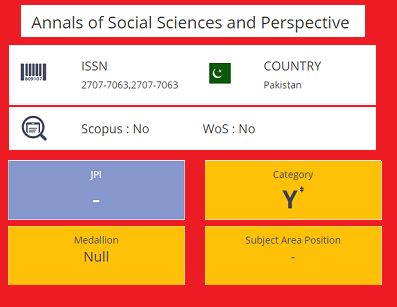Factors of Children not Reporting for Incredible Crimes in Kuala Muda, Kedah, Malaysia.
DOI:
https://doi.org/10.52700/assap.v3i1.189Abstract
A study was conducted to explore the effects of incestuous crimes on children and the factor of children not reporting these incidents or crimes to the appropriate party. The two main areas of research are the impact of incestuous crimes on children and the reasons children do not report them to the appropriate authorities. This study used qualitative methods through semi-structured interviews. A total of six (6) respondents were randomly selected as children among the victims of this dementia, aged between seven (7) to 15 years old. All interviews were conducted based on the research questions. The study found that some of the main effects were identified, such as the effect on the child's self-esteem as they feared, the children being traumatized by the experiences they had, and the children directly experiencing self-deprecation that cannot be attributed to the person Another is that children develop personality disorders at a young age. Finally, children explore the implications of other forms of distrust of others or third parties in their lives. In examining the factor that children do not report incestuous crimes, it is possible that this study shows that children are reluctant to report incidents due to their shame, that children depend on predators in terms of their basic needs, children are afraid to speak up. these abuses occur in their lives and the final factor is that children do not have the proper resources or channels for them to report incidents of violent crime against them. Therefore, collective action must be taken by all relevant parties to overcome the existing challenges and intensify efforts to curb incarcerated crime among children in Malaysia.
A study was conducted to explore the effects of incestuous crimes on children and the factor of children not reporting these incidents or crimes to the appropriate party. The two main areas of research are the impact of incestuous crimes on children and the reasons children do not report them to the appropriate authorities. This study used qualitative methods through semi-structured interviews. A total of six (6) respondents were randomly selected as children among the victims of this dementia, aged between seven (7) to 15 years old. All interviews were conducted based on the research questions. The study found that some of the main effects were identified, such as the effect on the child's self-esteem as they feared, the children being traumatized by the experiences they had, and the children directly experiencing self-deprecation that cannot be attributed to the person Another is that children develop personality disorders at a young age. Finally, children explore the implications of other forms of distrust of others or third parties in their lives. In examining the factor that children do not report incestuous crimes, it is possible that this study shows that children are reluctant to report incidents due to their shame, that children depend on predators in terms of their basic needs, children are afraid to speak up. these abuses occur in their lives and the final factor is that children do not have the proper resources or channels for them to report incidents of violent crime against them. Therefore, collective action must be taken by all relevant parties to overcome the existing challenges and intensify efforts to curb incarcerated crime among children in Malaysia.
Published
Issue
Section
Copyright (c) 2022 ANNALS OF SOCIAL SCIENCES AND PERSPECTIVE

This work is licensed under a Creative Commons Attribution-NonCommercial 4.0 International License.









